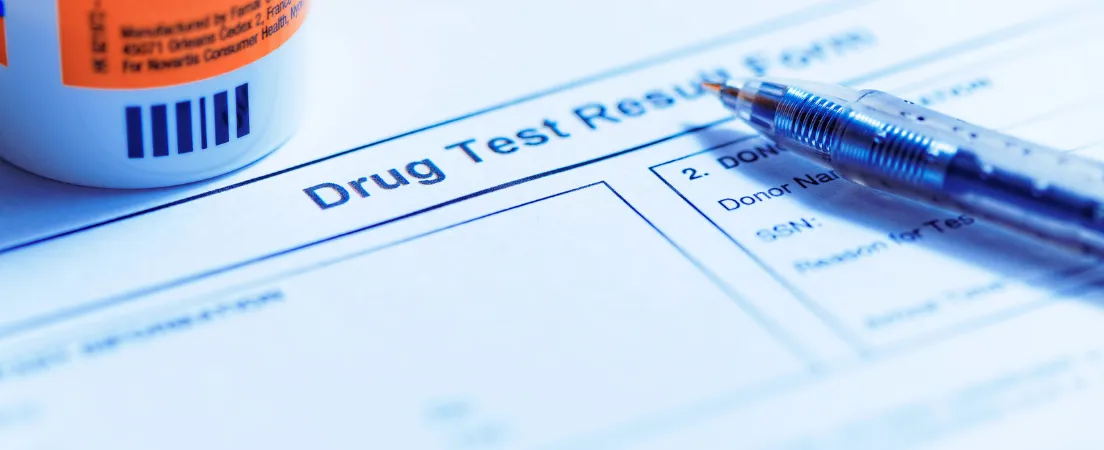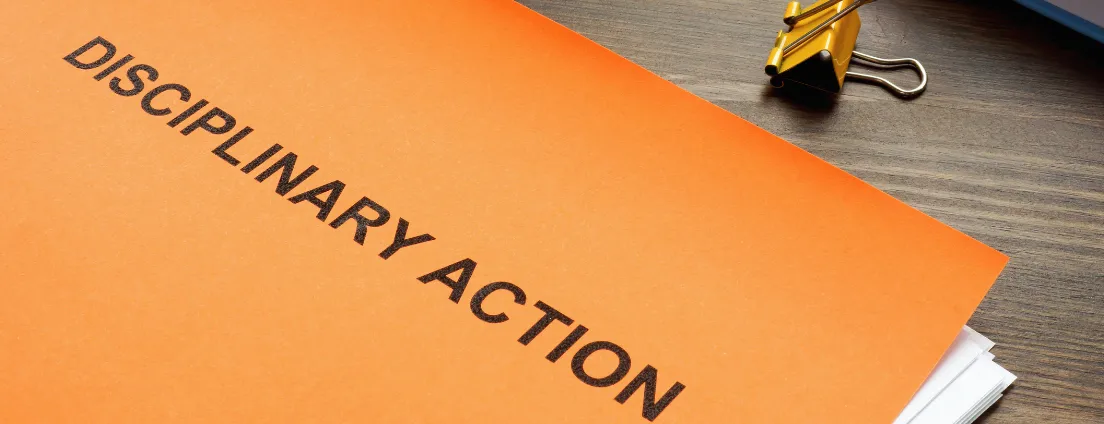What are the Consequences for Failing a Drug Test in the Military
Failing a military drug test can feel like your world just shifted. Within minutes you could face disciplinary proceedings, a potential hit to your career, and stress on your mental health. But the good news is: you are not without options.
Keep reading as we break down all the details on what happens if you fail a military drug test.
In this article from the expert team at TriCareRehabs.com, you will learn what to expect, how the process works, what your rights and obligations are, and how to engage treatment: especially when your healthcare is covered by Defense Health Agency (DHA) via TRICARE.
Understanding the Military Drug Testing Program

The U.S. military has a zero-tolerance policy for unauthorized drug use, and tests for a wide array of substances, both licit and illicit. Service members are subject to random testing, pre-deployment tests, commander-directed tests, and tests following accidents or misconduct.
If a sample comes back positive for a prohibited substance (without a valid medical‐use waiver), the chain of command will typically initiate an investigation.
What are the Immediate Consequences of a Positive Test in the Armed Forces?
If you receive a failed test result, the immediate steps may include:
-
Mandatory notification to your command.
-
A temporary suspension from duties pending investigation.
-
Enrollment in a commander’s referral to a substance misuse evaluation program.
-
Potential initiation of administrative or non-judicial punishment (depending on branch, grade, and circumstance).
-
For some careers (e.g., pilots, special operators), you may face suspension of security clearances or duty restrictions.
It’s crucial to act quickly: to cooperate with the investigation and seek support, and to realize that failing a test isn’t automatically the end of your career. Many service members recover and resume duty.
What is the Role of the Substance Misuse Evaluation (SME) in the Military?
After a positive test, you will likely undergo a substance misuse evaluation by a qualified clinician. This assessment determines whether you have a substance use disorder, whether you require treatment, and what level of care you need (outpatient vs residential).
The evaluation outcome directly influences command decisions—such as whether you receive a referral to treatment rather than administrative separation.
Treatment Pathways: Detox, Residential Care, Outpatient
If your evaluator determines you need treatment, you may be referred to one of the following:
-
Detoxification (“detox”): If your use includes alcohol or drugs requiring medical supervision, you may enter a medically supervised detox to safely manage withdrawal symptoms.
-
Residential (inpatient) treatment: Inpatient rehab offers a structured 24/7 environment where you live at the facility for a period of days to weeks, receive therapy, medical monitoring, and address the root causes of substance use.
-
Outpatient treatment: You continue to live at home (or on base) but attend scheduled therapy, groups, medication management, and monitoring.
The referral may also point you to a “dual diagnosis” program if you have underlying mental health issues (PTSD, anxiety, depression) alongside substance use. Programs tailored to the military lifestyle are especially effective.
How TRICARE Coverage Works with Treatment After a Failed Test
If you’re enrolled in TRICARE (as an active‐duty service member, retiree, or dependent), your treatment options are partially or fully covered, provided the care is medically necessary and delivered by a TRICARE-approved facility.
For example:
-
TRICARE covers medically supervised detoxification services.
-
Residential and outpatient services for substance use disorders are often covered through TRICARE East, TRICARE West, or TRICARE For Life plans.
-
Whether you pay out-of-pocket depends on your plan (e.g., active duty vs retiree), in-network status, and whether prior authorization is obtained.
It’s wise to verify your benefits, confirm that the facility accepts TRICARE, and ensure a referral is generated, especially after a positive drug test, when time is of the essence.
What a Failed Drug Test in the Armed Forces Means for Your Career (and How Treatment Affects It)
Failing the drug test places you at a crossroads. The command may decide to retain you if you actively engage in treatment and show accountability. Entering a treatment program voluntarily (and proactively) can reflect positively in command decision-making. It shows responsibility and commitment to recovery.
Conversely, refusing evaluation, skipping treatment, or repeated positives can trigger administrative separation, loss of security clearance, or discharge. For dependents, failing a test may affect access to certain base privileges and can complicate benefits.
The core takeaway: treatment is not just about your health: it plays a strategic role in your career outcome. A strong clinical record, documented completion of a program, and good follow-through may mitigate career damage.
Navigating Privacy, Treatment Selection & Aftercare
As a service member or veteran, you may worry about the effect of treatment on your career or security clearance. Programs specifically designed for military and veteran populations understand these concerns. They offer confidentiality, peer support, and aftercare planning that helps you transition smoothly back to duty or civilian life.
After your residential or outpatient program, aftercare is essential. This can include sober-living, weekly therapy, group support, medication-assisted treatment (MAT) for opioid or alcohol use disorders, and monitoring. The goal is not just to stop use, it’s to build a sustainable recovery that supports your duties, family, and future.
What are the Steps to Take After a Failed Test for Drugs in the Military
-
Stay calm and cooperate: The investigation is procedural: your response and attitude matter.
-
Ask for the evaluation: Request the substance misuse evaluation to clarify your treatment recommendation.
-
Verify your TRICARE benefits: Contact TriCareRehabs.com to confirm what level of care is covered, in-network providers, and authorization requirements.
-
Select an appropriate treatment facility: Preferably one experienced with military/dual-diagnosis issues and TRICARE.
-
Complete the program and engage aftercare: Demonstrating progress and stability will help your command decision-making.
-
Keep documentation: Records of evaluation, treatment progress, completion, aftercare enrolment—all of this may be relevant during retention or discharge proceedings.
Reach Out Proactively and Get Support for a Failed Military Drug Test Today
Failing a military drug test is serious, but it doesn’t have to end your mission or career. With the right mindset and proactive steps, you can leverage the resources available through TRICARE, get the support you need, and come out stronger on the other side.
Whether you’re undergoing detox, residential treatment, or outpatient care, the crucial response is one of action: begin treatment promptly, engage fully, and use the aftercare plan as your launchpad for sustained wellness.
If you’re a service member, veteran or family member facing this challenge, you are eligible for help, and the sooner you act, the better your health, career and future will be.
Please call us confidentially to learn more about your coverage and options, and protect your role and military career now.
FAQs Often Asked About Military Failed Drug Testing Results
Will I be automatically discharged following a failed military drug test?
Not always. If you engage in the evaluation and treatment process, many commands will support retention.
Will TRICARE cover long‐term rehab after failing a drug test?
Yes: so long as your care is medically necessary and approved. Coverage for residential stays or extended treatment varies by plan.
Does the type of substance matter for a failed drug test in the Armed Forces?
Yes. Some substances (illegal drugs or misused prescription medications) carry heavier administration consequences than others (e.g., alcohol policy violations). Each branch has its own policy.
Will my command or clearance find out about a positive drug screening?
Yes: the command is notified of the positive test. However, the focus is on your next steps and treatment rather than shame.
Can dependents (spouse or child) who fail a test access TRICARE-covered rehab?
Yes, dependents enrolled in TRICARE may also access coverage if medically necessary and approved by TRICARE. The process for them parallels the service member process.
References and Further Resources
-
Office of the Under Secretary of Defense for Personnel & Readiness. (2020, June 15). DoDI 1010.16: Technical procedures for the military personnel drug abuse testing program. U.S. Department of Defense. https://www.esd.whs.mil/Portals/54/Documents/DD/issuances/dodi/101016p.pdf
-
Defense Health Agency. (2024, October 29). Substance use disorder treatment. TRICARE. https://tricare.mil/CoveredServices/IsItCovered/SubstanceUseDisorderTreatment
-
Military OneSource. (2025, January 8). Military policy and treatment for substance use. U.S. Department of Defense. https://www.militaryonesource.mil/health-wellness/prevention-care/military-policy-and-treatment-for-substance-use/
-
Defense Health Agency. (2024, November 21). Treatments: Substance use disorders. TRICARE. https://tricare.mil/HealthWellness/Substance-Use-Disorders/Treatments
- Does Spice Show Up on a Military Drug Test? - December 2, 2025
- Air Force DDRP Guidance - November 30, 2025
- Can You Join the Military with a Misdemeanor Drug Charge? - November 25, 2025

